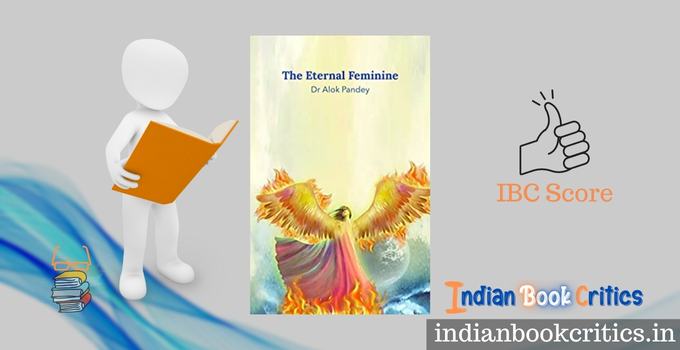Dr Alok Pandey, the author of The Eternal Feminine, a book that tries to explore and decode the feminine depicted in the great Indian scriptures, myths, legends and religious history, grew up in a spiritually conscious family and thus developed an interest in spirituality. Though he pursued MD in psychiatry, he continued his pursuits in various dimensions of spirituality – integral Yoga (influenced by Sri Aurobindo), deconstruction and interpretation of myths and legends, and analysis of the symbolism in various Hindu scriptures. However, the focus of such analysis is mainly on the various forms of Goddesses – Durga, Kali, Ganga, Radha, Sati, Parvati, Shatroopa, Diti, Aditi, Sita, Draupadi, and many legendary women who appeared in the human form – Savitri, Ahilya, Gargi, Maitreyi, and many others.
The Eternal Feminine, as a book, celebrates the feminine divinity and, contrary to the popular belief that Hindu history is often patriarchal brings to the fore that we have been worshipping, praying, taking shelter under the grace, and celebrating the feminine forever. The author hints at the ancient, the mystic and the eternal belief that sages and Rishis have been sharing with humanity – there is an eternal feminine Shakti and an eternal masculine Shakti. The eternal masculine casts the seed and watches over the creation like a father. The eternal feminine nourishes the creation like a mother, helping every part of it grow and have experiences… responding to every call of woe and help. On page 33, you can read more about this part.
The book is divided into four different parts. The first three parts describe the divine feminine in the form of Goddesses and avatars. The fourth part celebrates the glory of the feminine in worldly forms. There are interesting and inspiring stories of Kayadhu, Maitreyi, Gargi, Anusooya, Taramati, Ahilya and a few others. These stories are not only narrated by the author but also the symbolism and spiritual importance behind these stories have been shared in brief, but in detail enough that one can easily understand what was the role of women in ancient India. Described by the author as Sahdharmini – the one who walks the path of dharma with her husband – the exemplary women represent feminine in its best form.
Overall, this is an ideal book to understand the importance of the feminine in the Godly hierarchy as well as in the human form. The commentary by Dr Alok Pandey and instances and references from the works of Sri Aurobindo will make it further detailed, authenticated and broad enough to satisfy the questions that might arise in the process of reading this wonderful book. There is an important aspect of this book that I would like to highlight. Usually, when an author writes books on such important topics, it is very common to take a moral high ground and obfuscate the meanings with complex words being used in the sentences. However, Dr Alok Pandey has kept his book The Eternal Feminine very simple, within reach, and useful. He has dealt with a very delicate, sensitive and complex theme in a manner that will inspire the readers to go through the text to the very end. I liked this aspect.
You can get a copy of this book from Amazon India and start reading it right away! All the best!
Click the link below to buy a copy now:
Get The Eternal Feminine from Amazon India – click here to open the Amazon book page
Review by Amit for Indian Book Critics
The Eternal Feminine by Dr Alok Pandey – Book Review
-
IBC Critical Rating
Summary
The Eternal Feminine by Dr Alok Pandey is a book that explains the role of the feminine in Hindu philosophy, spirituality and religious texts. It is a well-written and nicely explained book.
